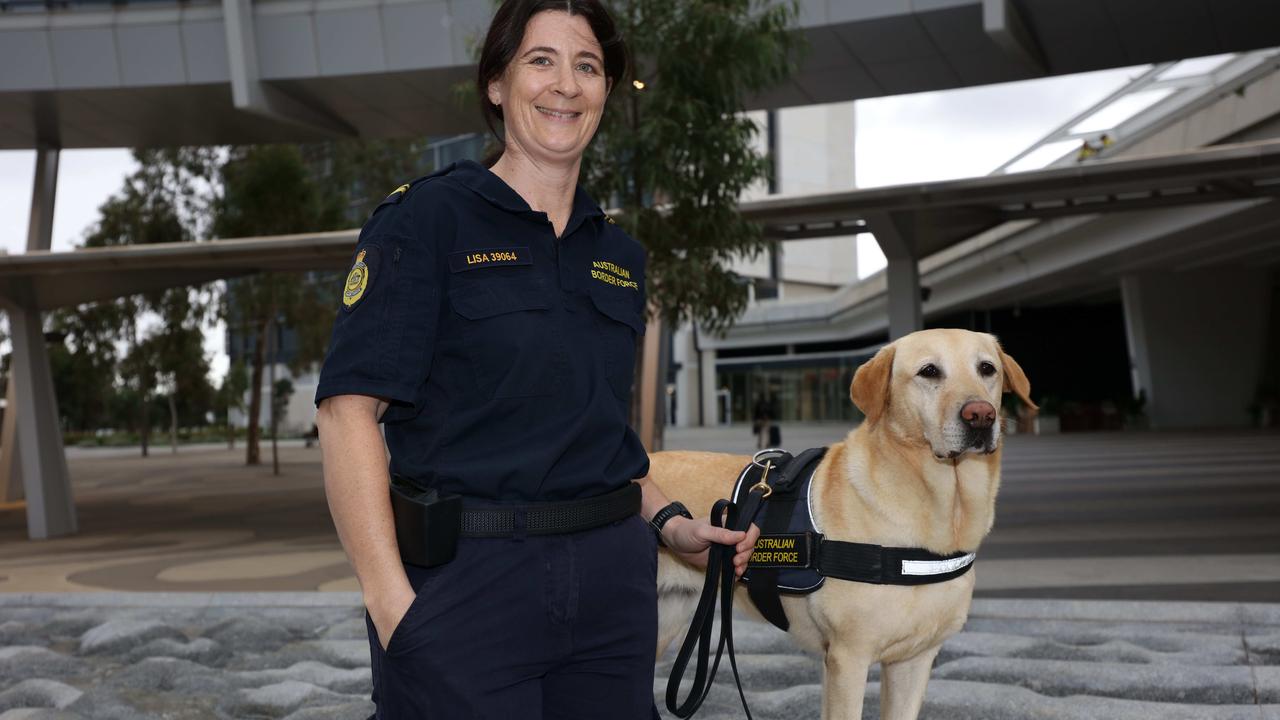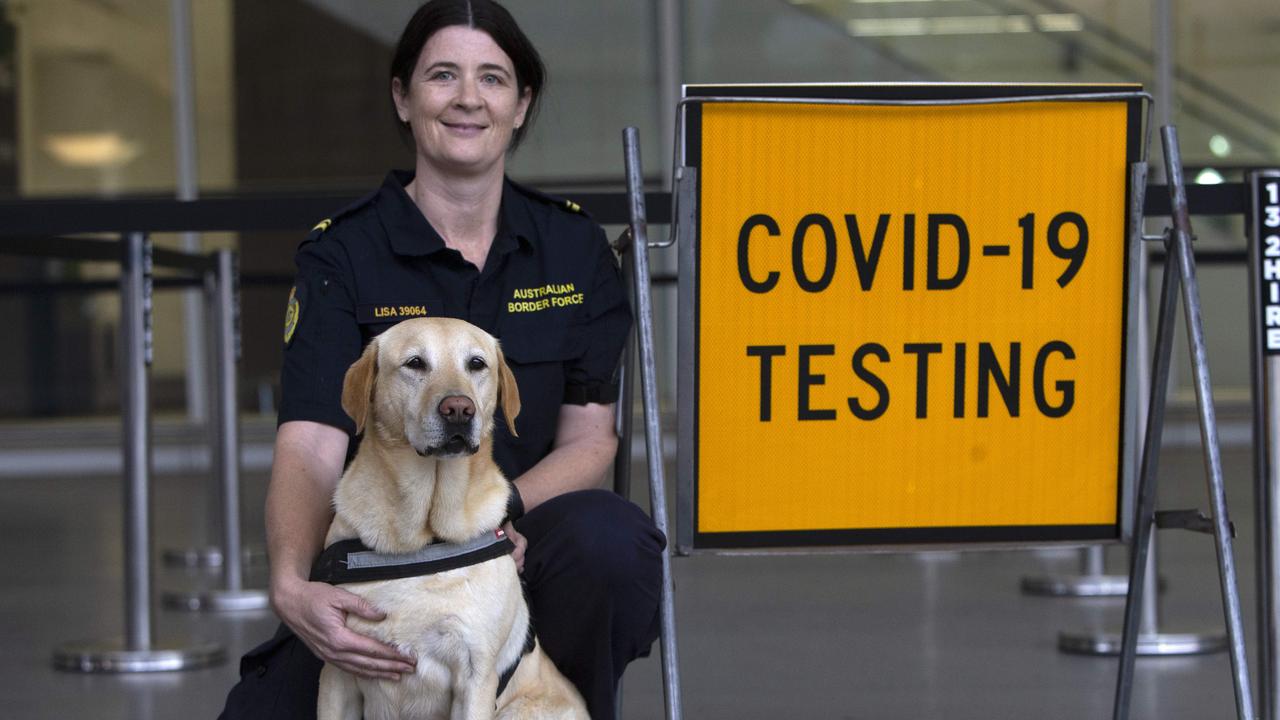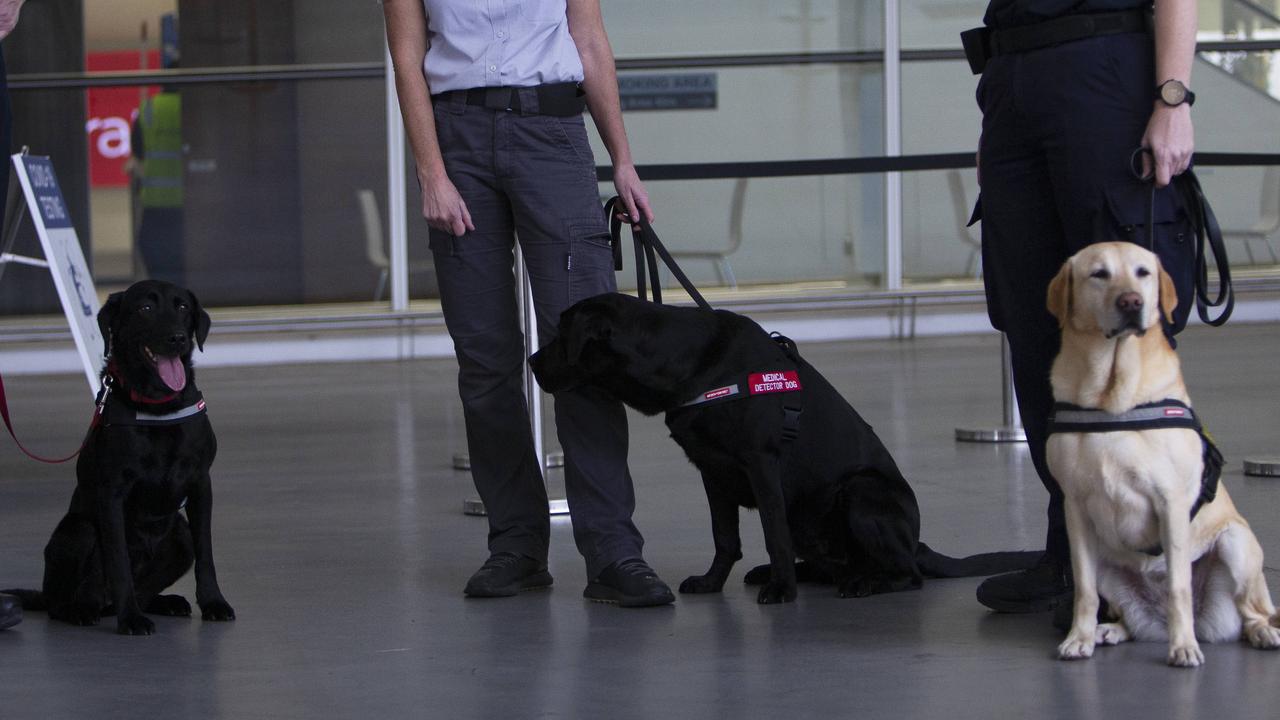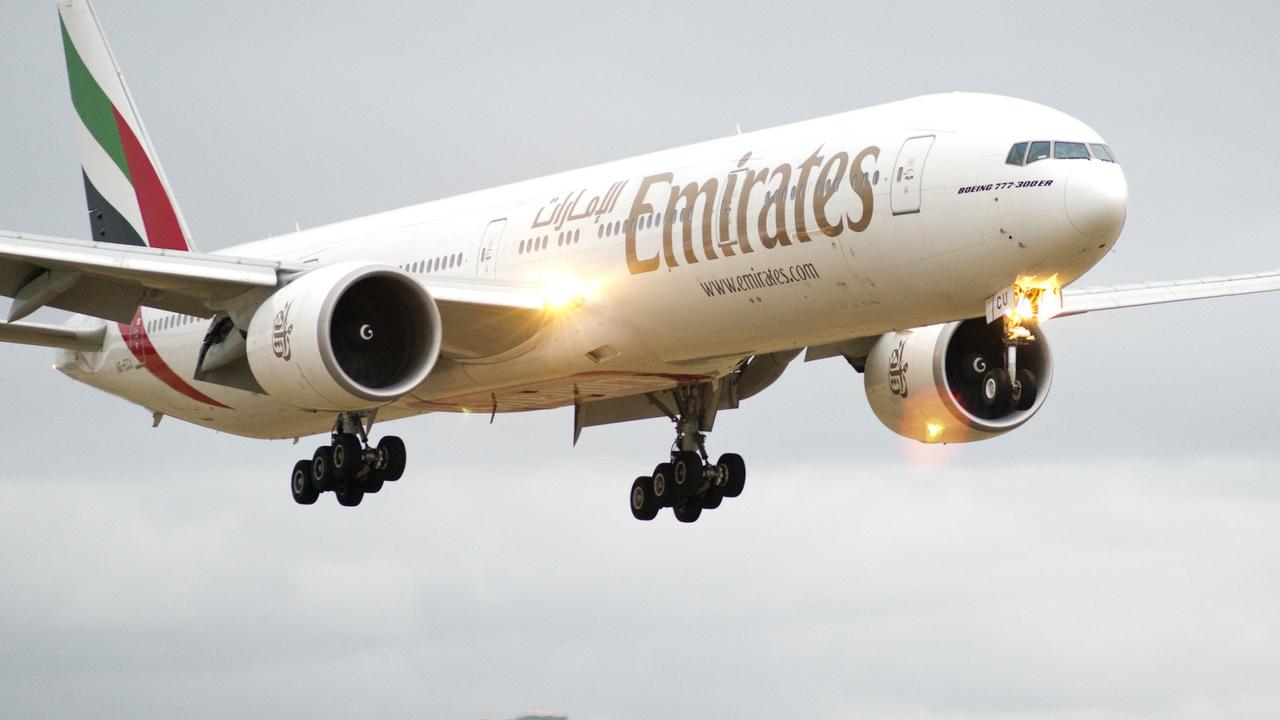Adelaide Airport begins Covid-19 detector dog trial
In a bizarre twist to the threat of Covid-19 plaguing the travel industry, authorities have leaned on an unlikely source for help.
Covid-19 detector dogs have been employed at Adelaide Airport in the hope the canine crew could one day protect Australian borders from the deadly pandemic.
A trial began on Thursday and is the next stage of ongoing research into the effectiveness of the dogs detecting the virus excreted through sweat glands.
The six dogs, provided by the Australian Border Force (ABF), SA Metropolitan Fire Service and University of Adelaide, will be tested on travellers returning to Australia on repatriation flights.
It comes after a Sydney trial where dogs were monitored for effectiveness in detecting Covid from sweat samples of infectious people.
RELATED: Major Vic shopping centre on virus alert


“Potentially, detector dogs may be able to provide a more accurate indication of whether a person is infectious than is currently being undertaken in hotel quarantine and the community,” University of Adelaide’s Dr Anne-Lise Chaber said.
“Using a scientific approach to dog training, we hope to increase the number of possible uses for future detector dog work.”
Acting ABF Commander John Taylor said Australia was at the “forefront of technologies and capabilities being developed” to protect the country’s borders against the virus.

“This project uses the expertise of the ABF’s Detector Dog Program, supported by domestic and international partners across the public and private sector, with broader expertise in human biosecurity, virology and health sciences,” he said.
“The ability of a dog to indicate a person is infectious even though they have not yet had a positive Polymerase Chain Reaction test will assist in earlier intervention in managing potential spread of the virus.”
The dogs were not being trained to sniff Covid directly, but to detect the presence of the virus in sweat glands that have been volunteered by people and presented to the dog in isolation away from the travelling public.




